
World-class experts discuss the future of Central and South Asian connectivity at the Termez Dialogue
Termez, Uzbekistan, May 21 | ORIENT. Today, the Termez Dialogue on Central and South Asian Connectivity marked a deep dive into the region’s issues at the expert level. The forum brought together leading analysts and scholars from a wide range of countries, including representatives from reputable think tanks in Central and South Asia, as well as Russia, the United States, China, the United Kingdom and many others.
The expert dialogue, moderated by First Deputy Director of the Institute for Strategic and Interregional Studies under the President of Uzbekistan Akramjon Nematov, gave rise to a lively discussion with the participation of such prominent analysts as the Chief Researcher of the Kazakhstan Institute for Strategic Studies under the President of the Republic of Kazakhstan Sanat Kushkumbayev, Head of Department of the National Institute for Strategic Initiatives under the President of the Kyrgyz Republic Erlan Tolaganov and Director of the Institute for the Study of Problems of Asian and European Countries of the National Academy of Sciences of Tajikistan Khaidarzoda Rustam Jura. Bekdurdy Amansaryev, a researcher at the Center for Strategic Studies of the Institute of International Relations of the Ministry of Foreign Affairs of Turkmenistan, also presented his views on issues of regional interconnectedness.
His in-depth analysis of the practical aspects and strategic significance of the interconnectedness between Central and South Asia evoked a lively response and numerous requests for the text of the speech from representatives of think tanks in various countries.
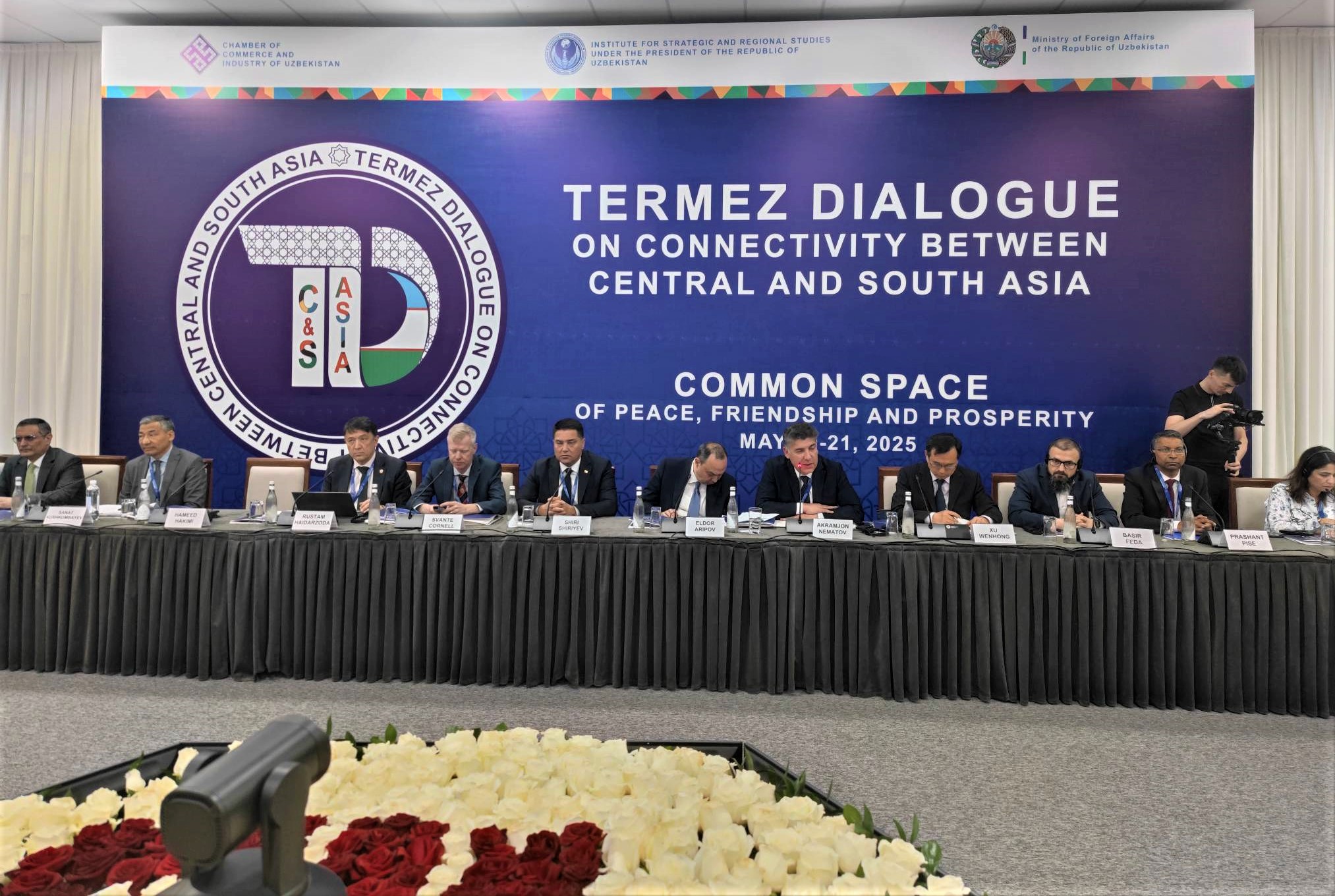
From the first minutes of his speech, the speaker set a high bar for the discussion, emphasizing that interconnectedness is not just a formal term, but a «deep, vital and purely practical meaning» for the future of the two macro-regions. He called on the participants to move from abstract reasoning to concrete actions in four key dimensions.
First of all, infrastructural and economic interconnectedness was highlighted. According to the speaker, the key element here is the creation of functional and efficient transport and transit corridors – railways and roads that ensure the unimpeded movement of goods.
No less important are energy bridges that guarantee mutual supplies of resources, and modern telecommunications networks that facilitate information exchange and digitalization of economies. «Without this physical and digital connectivity, any talk of prosperity remains just intentions,» Amansaryev noted.
The speaker then raised the issue of the interconnectedness of challenges and threats. It was noted that, living on the same continent, the countries of the region face common problems, be it traditional threats such as terrorism and drug trafficking, or new challenges, including climate change and water management. «All these new and old challenges are united by the fact that they do not recognize state borders. Interconnectedness here means our common responsibility and the need for joint, coordinated action,» the speaker emphasized.
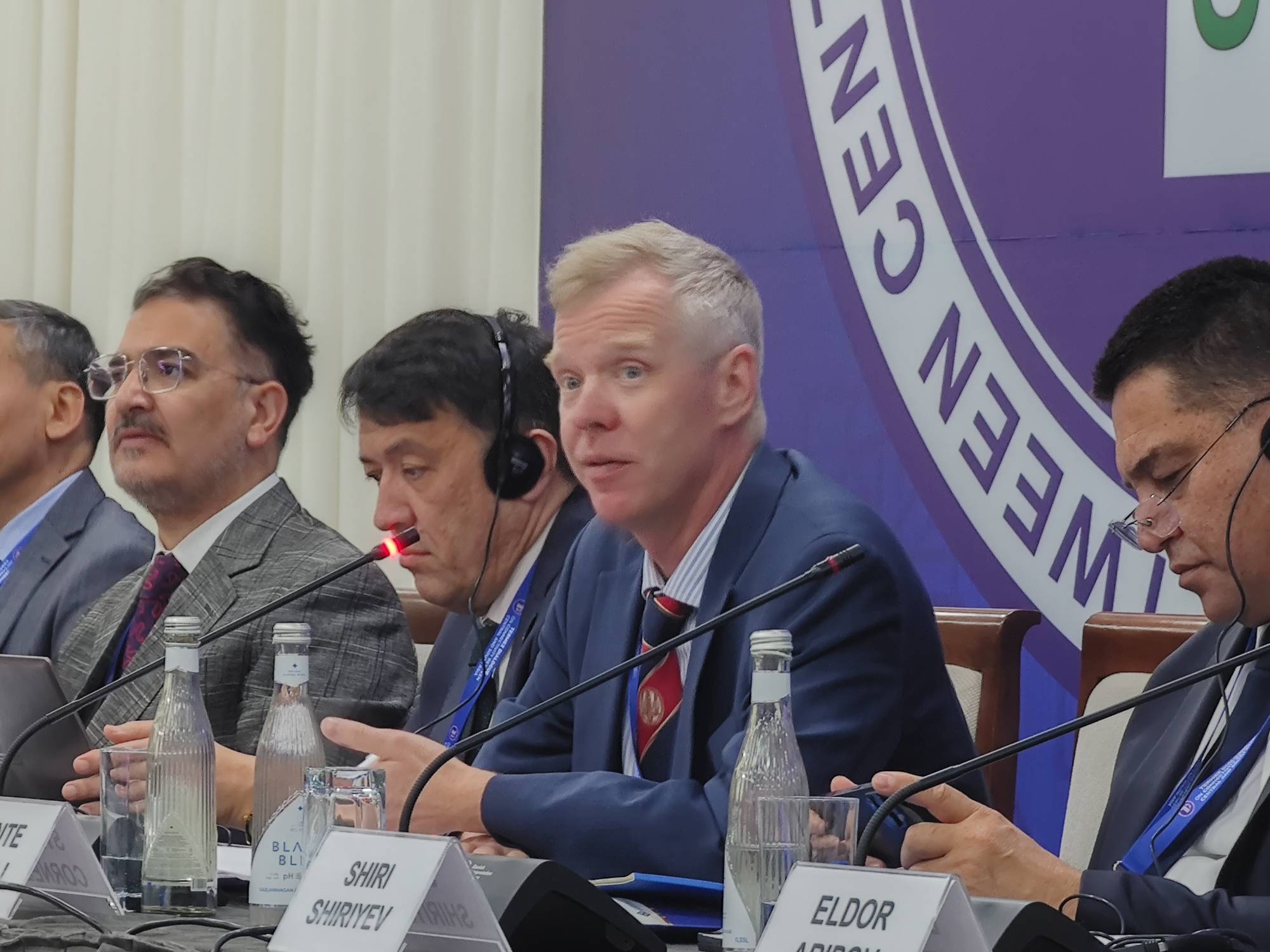
Particular attention was paid to the interconnectedness of opportunities and development. Strengthening ties, according to Amansaryev, opens up enormous prospects for economic growth through increased trade, investment, tourism development and expansion of business contacts, creating synergy for the sustainable development of the entire Eurasian space.
The fourth important dimension was humanitarian and cultural interconnectedness. The speaker emphasized that the exchange of knowledge, educational and scientific contacts, cultural exchanges and the development of human ties are the foundation for strengthening mutual trust, friendship and good neighborliness, which, in turn, is the basis for building a «common space of peace, friendship and prosperity».
In the context of the practical implementation of interconnectedness, the expert dwelt in detail on Turkmenistan's international projects. Touching upon energy cooperation, the speaker recalled the TAPI gas pipeline and the Turkmenistan-Afghanistan-Pakistan power transmission line projects, emphasizing the efforts of the Turkmen side to implement them, including in Afghanistan. The importance of these projects for creating sustainable markets and supporting the economic recovery of the neighboring country was noted.
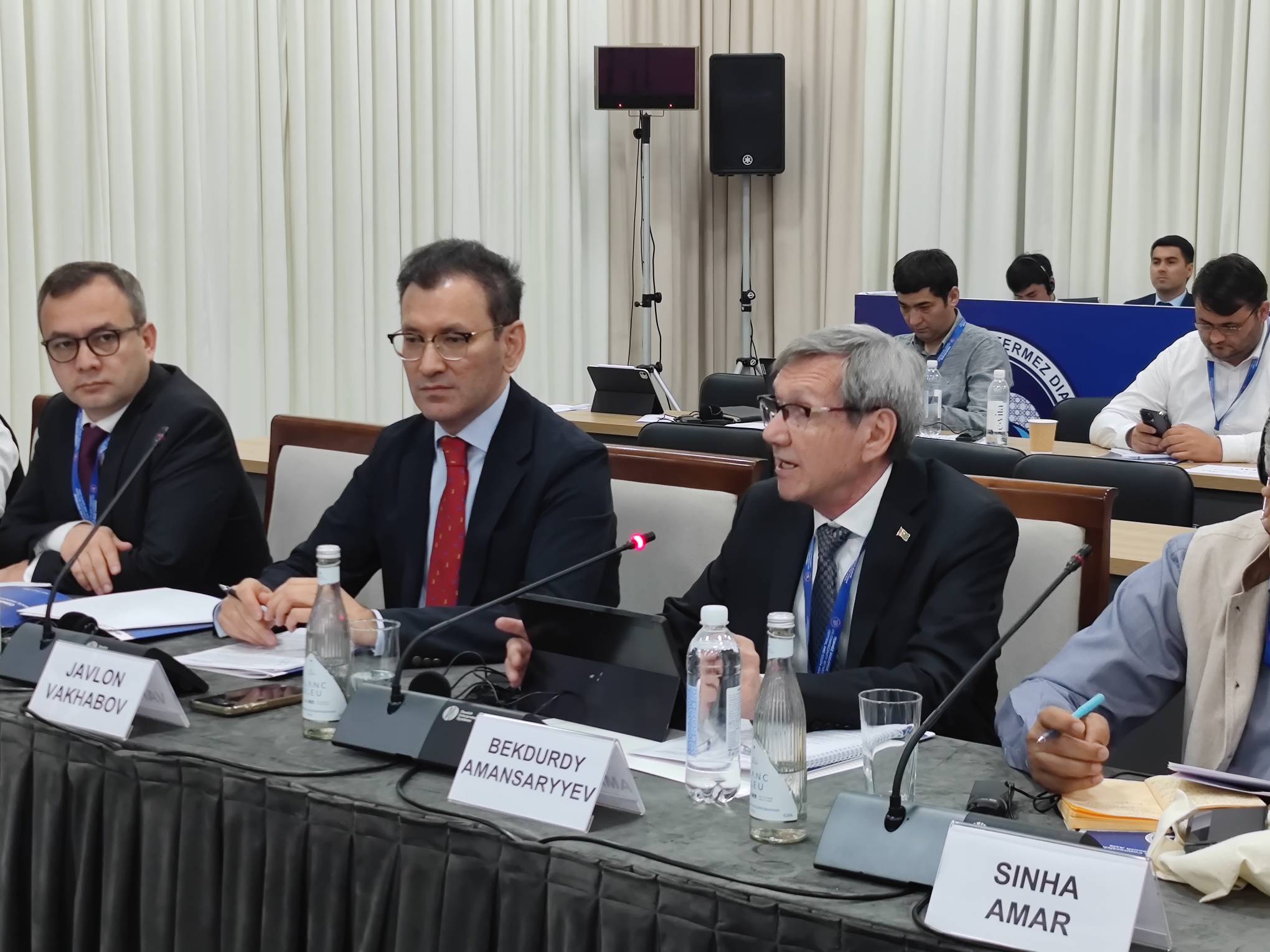
In the field of transport, special attention was paid to the Trans-Afghan Transport Route project and the development of railway communications, in particular, the successful operation of the Kerki-Andkhoy highway and plans to extend it to Herat. The construction of a loading and unloading complex at the Afghan dry port of Turgundi, which is part of the Lapis Lazuli Corridor and is designed to contribute to the development of the Afghan economy, was also mentioned.
In his speech, the speaker quoted the words of President of Turkmenistan Serdar Berdimuhamedov: «We see prospects for the unification of resource, economic and transport capabilities of Central Asia, India and Pakistan, the connectivity of the two subcontinents and access to the World Ocean.» This quote emphasized Turkmenistan’s strategic vision in the context of regional connectivity.
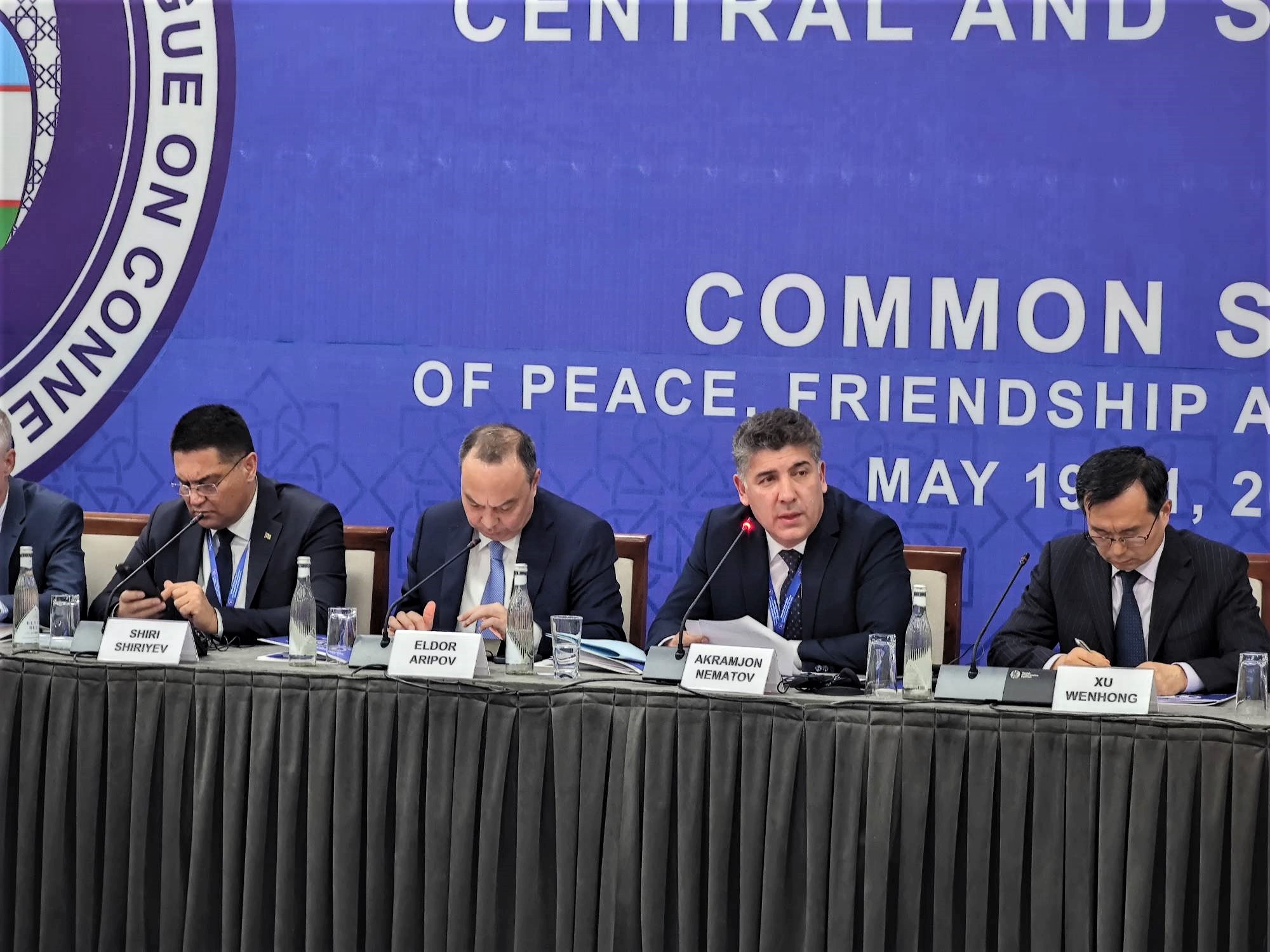
Continuing his thought, the speaker moved on to the interconnectedness of opportunities and development. He emphasized that strengthening regional ties opens the door to significant economic growth by increasing trade, attracting investment, developing tourism and expanding business contacts. «Interconnectedness allows us to use existing potential more effectively and create new synergies that enhance the effect of interaction for the sustainable development of the entire Eurasian space,» Amansaryev said.
Humanitarian and cultural interconnectedness was named as an equally important aspect. Noting the rich common history and close cultural ties, the speaker emphasized that the exchange of knowledge, educational and scientific contacts, cultural exchanges and the development of human ties are the most important humanitarian driver of interconnectedness and the basis for strengthening mutual trust and good neighborliness.
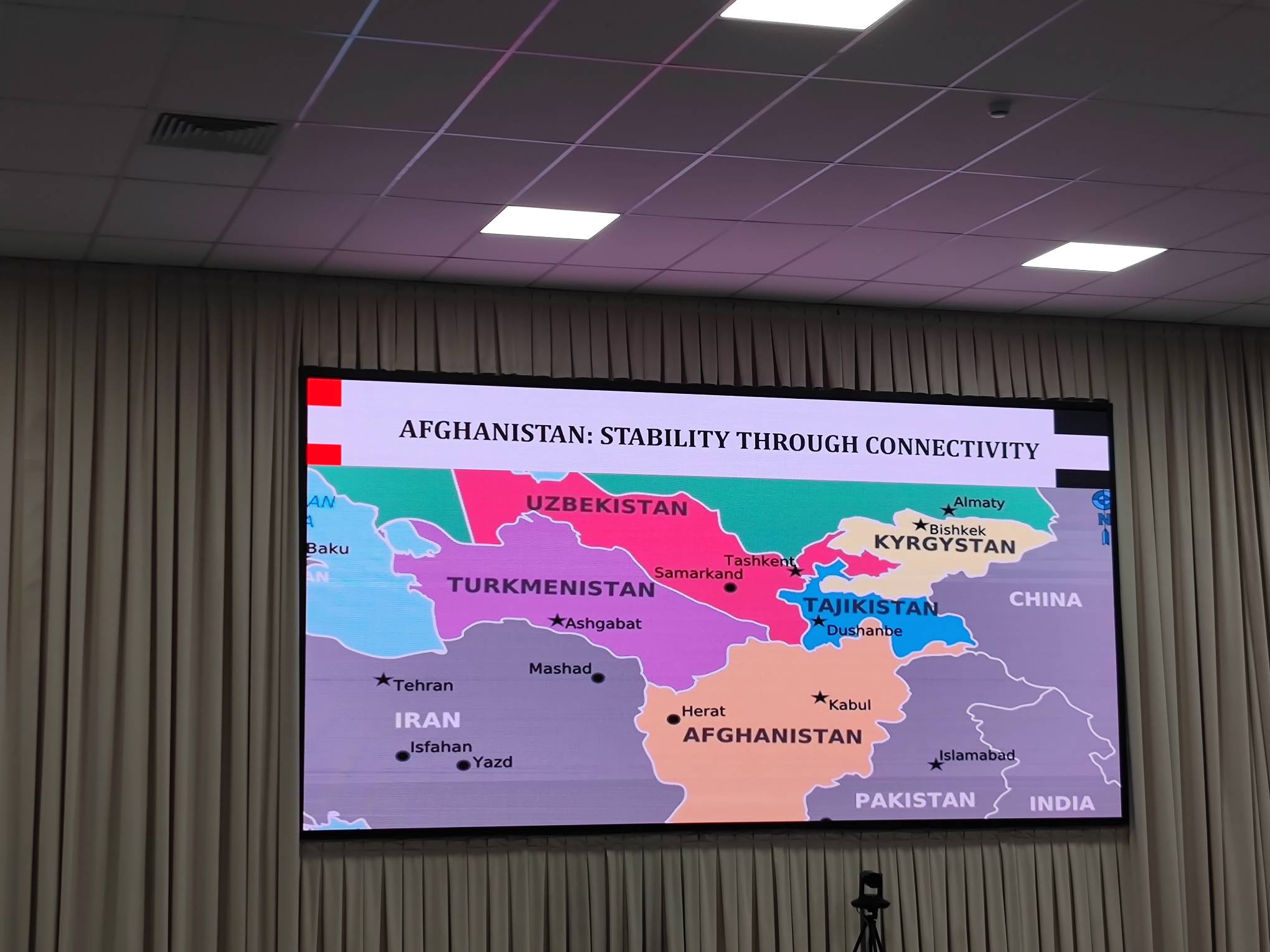
Turning to the role of Turkmenistan in this process, Bekdurdy Amansaryev noted that for the country that consistently pursues a policy of positive neutrality and broad international cooperation, the development of interconnectedness has always been a key priority.
The expert emphasized the strategic importance of interconnectedness, noting that this is «not just a set of infrastructure projects, but a strategic direction that can change the future of the entire Eurasian space,» creating a new model of regional development, where each participant benefits from cooperation, sustainability and peace.
The interconnectedness of Central and South Asia is of global strategic importance. It creates a new center of gravity in Eurasia, reduces dependence on traditional routes through third countries and strengthens regional resilience.
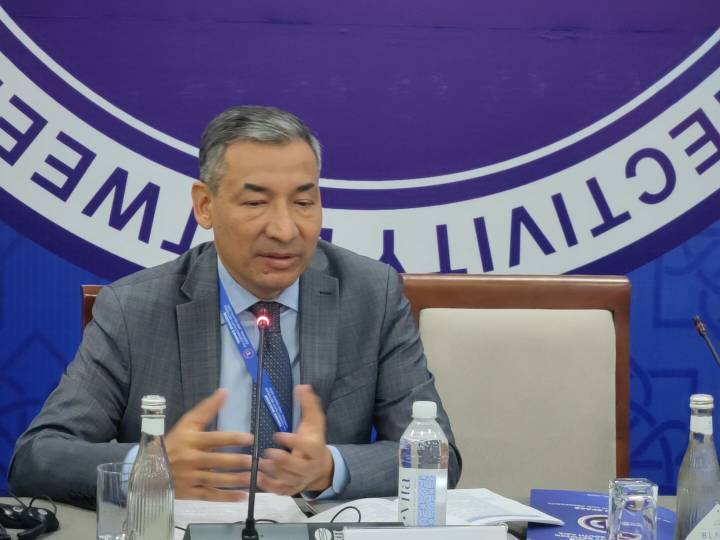
Regional initiatives such as the Heart of Asia – Istanbul Process and the Central Asian + South Asia format, and now the Termez Dialogue, can become effective platforms for institutionalizing cooperation.
In addition, according to the speaker, such interconnectedness is in the interests of major external players, including China, India, the EU, Russia and Turkey, which creates opportunities for partnerships, provided that regional sovereignty is respected.
The speech of Bekdurdy Amansaryev sparked a lively discussion among experts, including representatives from Afghanistan, India, Pakistan, the United States, Russia, China and other countries who took part in the sessions on the second day of the forum.
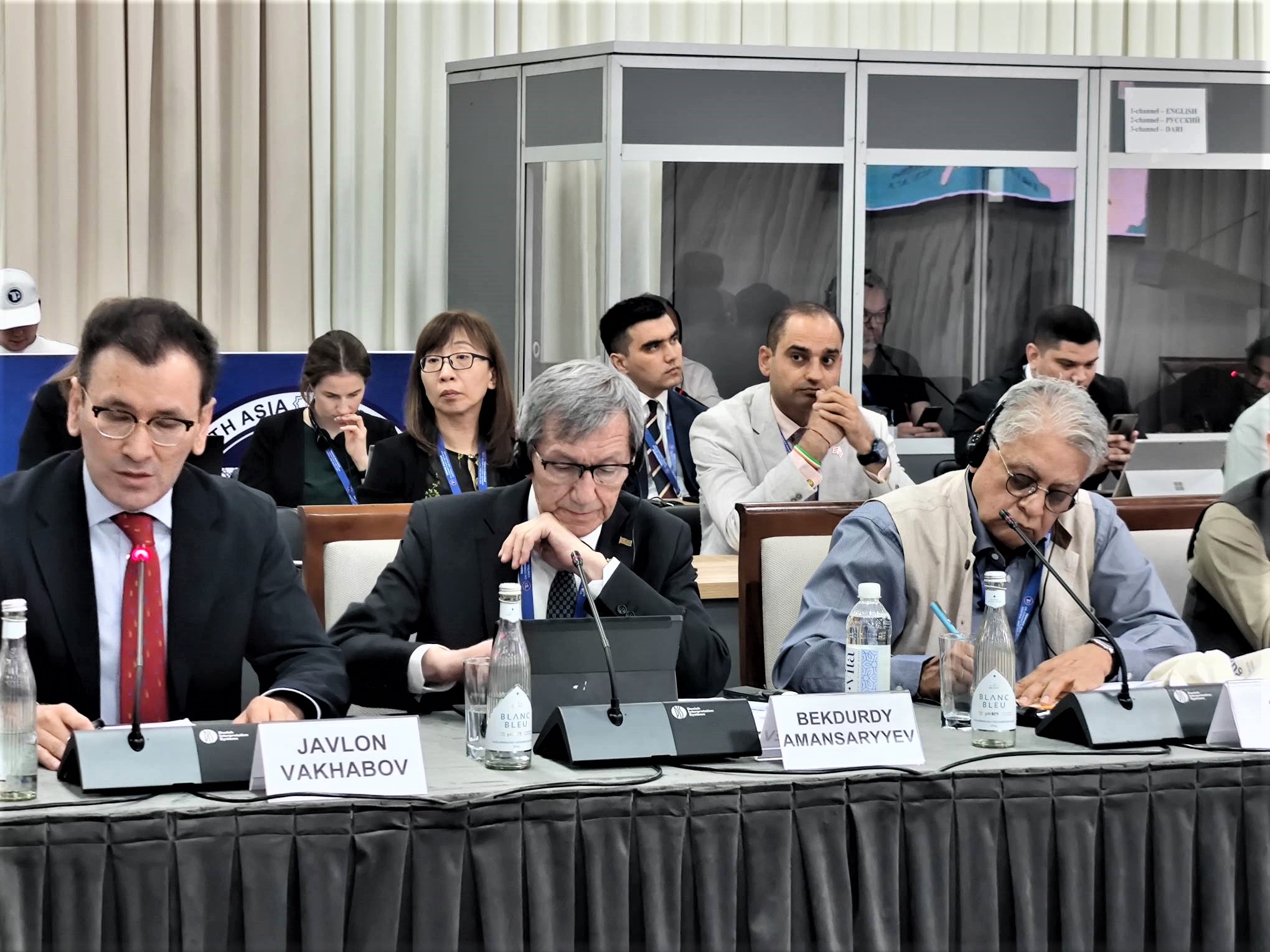
In particular, it was proposed to introduce the term «respect for regional sovereignty» and use it in discussions and analytical approaches to the formation of promising plans for interaction.
The Termez Dialogue demonstrated the desire of the countries of Central and South Asia to develop a joint vision for the development of regional interconnectedness. An open exchange of views at the high government and expert levels made it possible to outline promising areas of cooperation based on the principles of mutual respect and consideration of the interests of all participants. The forum became an important step towards building a common space of peace, friendship and prosperity.
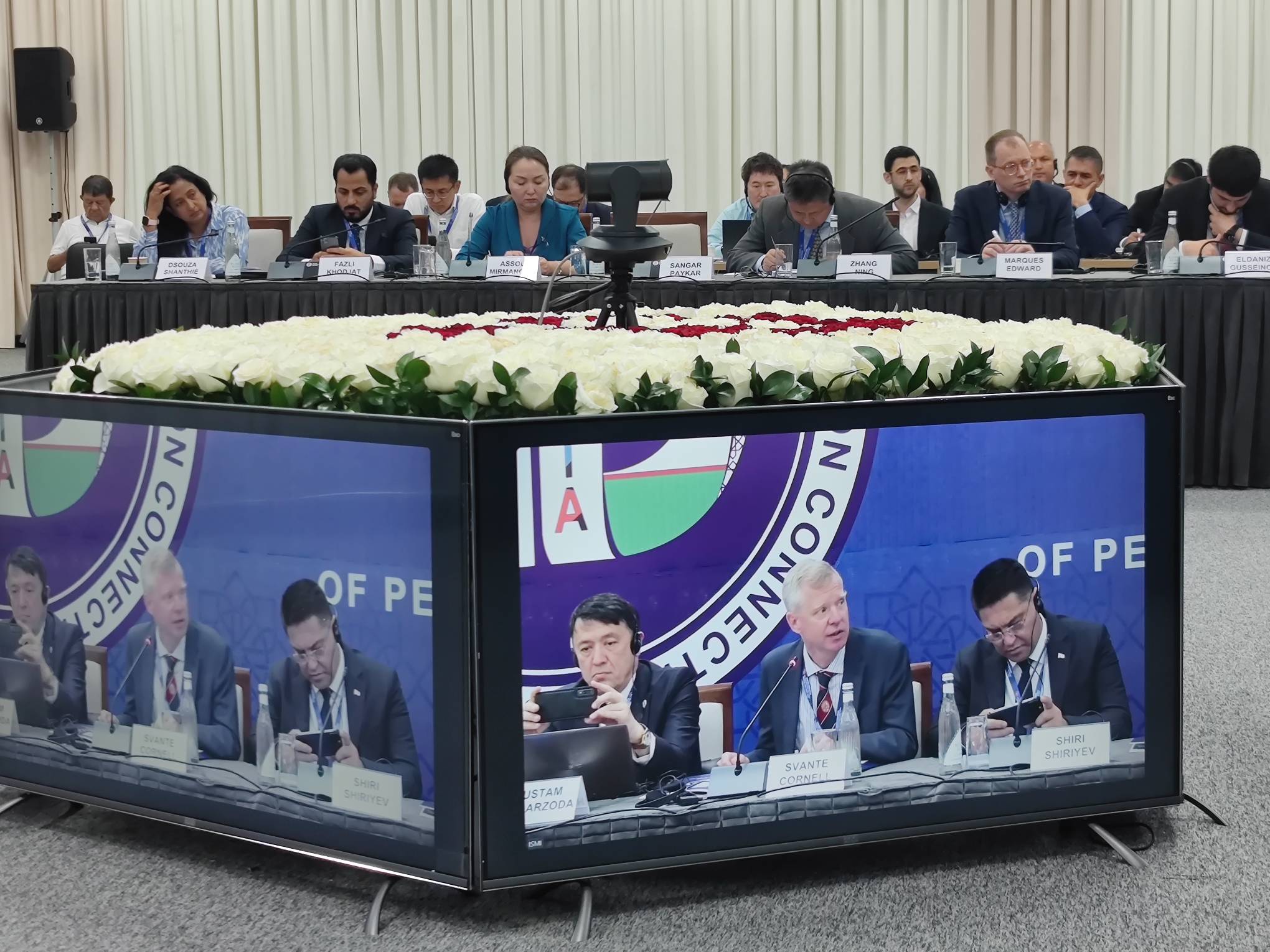
ORIENT will continue to monitor the developments and implementation of the initiatives announced at the Termez Dialogue.
